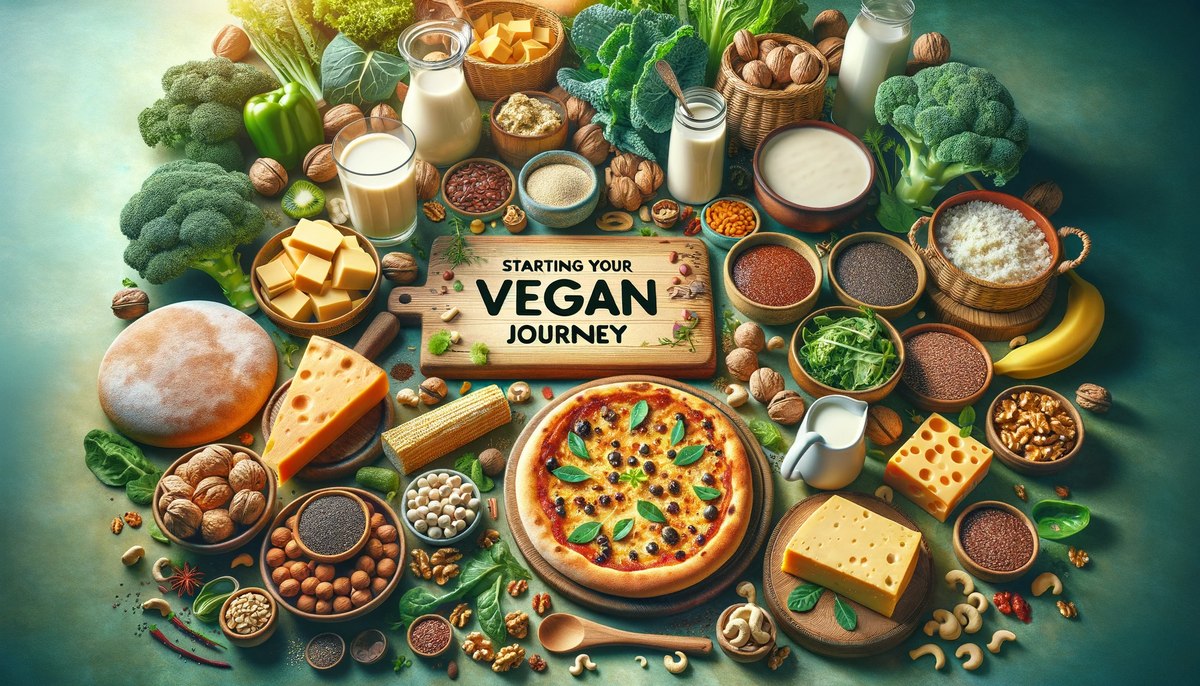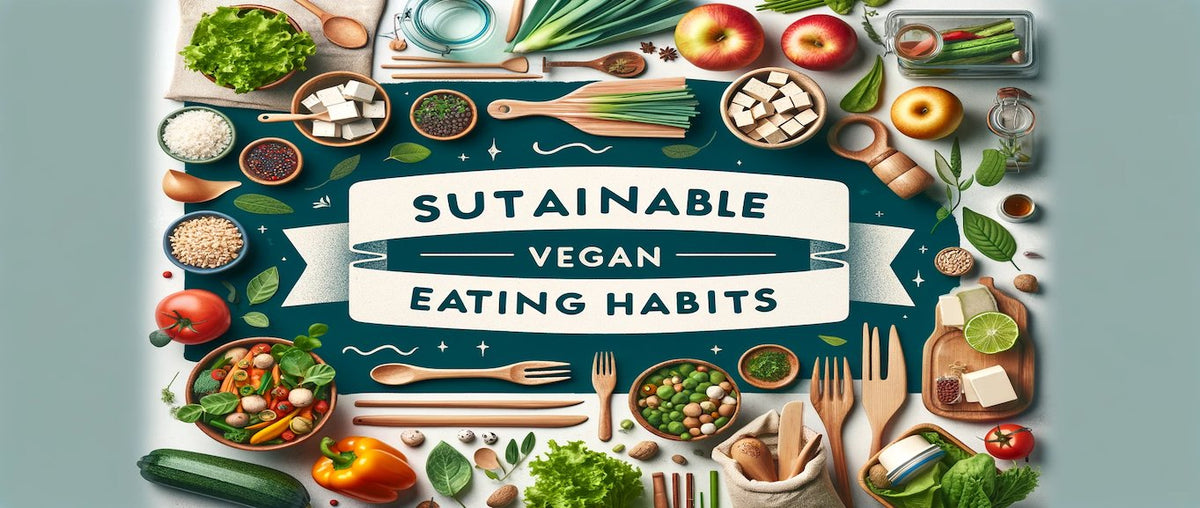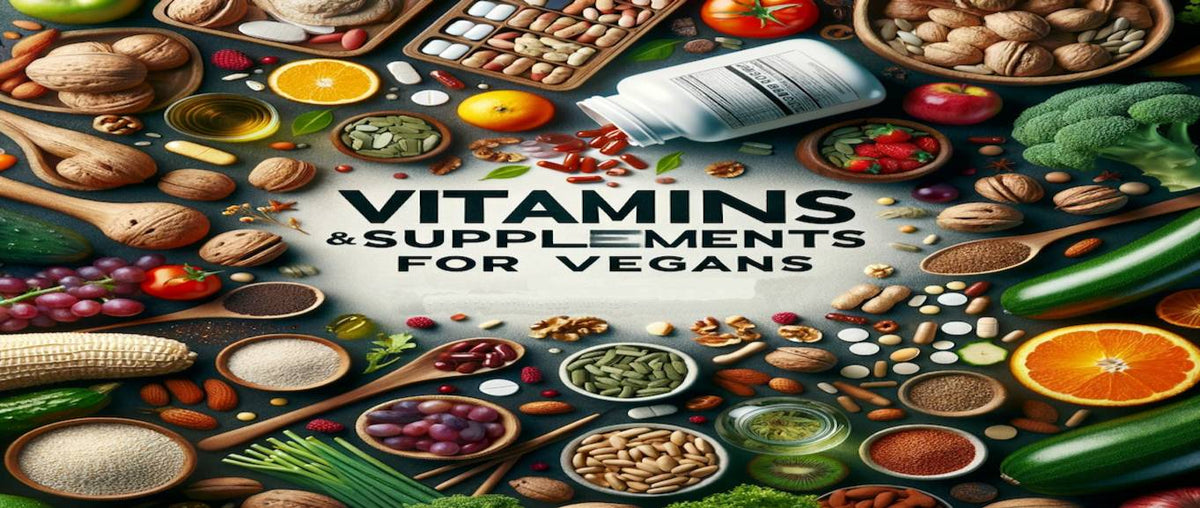Starting Your Vegan Journey: Indulge in Grabenord's Guilt-Free Delights
Veganism transcends the mere selection of vegan diet; it represents a holistic approach to life that strives to eliminate all forms of animal exploitation and cruelty, not only in food but across all aspects of life. Vegans refrain from consuming animal products such as meat, dairy, eggs, and honey, and avoid products derived from animals like leather and fur. This lifestyle is grounded in the ethical belief that animals deserve to live free from human use and exploitation, advocating for a shift towards plant-based nutrition that also delivers substantial health benefits. From reducing the risk of chronic diseases such as heart conditions and diabetes to promoting sustainable environmental practices by minimizing the ecological footprint, Veganism offers a compassionate, health-conscious, and eco-friendly lifestyle choice.
Key Takeaways
- Veganism Overview: A comprehensive lifestyle choice avoiding animal exploitation in diet and beyond.
- Health Benefits: Improved heart health, weight management, and lower risk of chronic diseases.
- Nutritional Focus: Adequate intake of plant-based protein, iron, Omega-3s, calcium, and vitamin B12.
- Recognizing the ethical and environmental implications of veganism.
- Overcoming Challenges: Managing cravings and social pressures with vegan alternatives and community support.
What Does Vegan Mean?
Veganism is more than just a diet; it's a lifestyle choice that seeks to exclude, as far as possible and practicable, all forms of exploitation of, and cruelty to, animals for food, clothing, or any other purpose. This means that vegans avoid consuming animal products, not just in their diet but also in other aspects of their lives. This includes meat, dairy, eggs, and honey, as well as products like leather and fur.
- Ethical Considerations: At its core, veganism is rooted in the ethical belief that animals have the right to live free from human use and exploitation.
- Environmental Impact: Many people choose veganism to reduce their environmental footprint, as animal agriculture is a significant contributor to greenhouse gas emissions, deforestation, and water pollution.
- Health Benefits: A well-planned vegan diet can offer various health benefits, including reduced risks of heart disease, high blood pressure, type 2 diabetes, and certain cancers.
Why Do People Become Vegan?
People decide to adopt a vegan lifestyle for a variety of reasons, which can be broadly categorized into three main areas:
1. Ethical Reasons: The primary motivation for many vegans is the ethical concern for animals. Ethical vegans strongly believe that all creatures have a right to life and freedom and therefore oppose ending a sentient being's life to consume its flesh, milk, or eggs. 2. Environmental Concerns: Environmental vegans focus on the sustainability aspect. They argue that animal agriculture is inefficient and unsustainable, contributing significantly to climate change, habitat destruction, and water scarcity. 3. Health Benefits: Health-conscious individuals often choose veganism for its potential health benefits. A plant-based diet is rich in nutrients, low in saturated fats, and free from cholesterol, contributing to better heart health, lower cancer risk, and weight loss.
Benefits of Becoming Vegan
Transitioning to a vegan lifestyle can have profound impacts not only on personal health but also on the environment and animal welfare. Let's explore these benefits in more detail:
Health Benefits
- Reduced Risk of Chronic Diseases: A diet rich in plant based foods can significantly lower the risk of developing chronic diseases such as heart disease, type 2 diabetes, and certain types of cancer. This is attributed to the lower levels of saturated fats, cholesterol, and harmful compounds found in plant-based diets.
- Weight Management: Adopting a vegan diet can also aid in weight loss and management. Plant-based foods tend to be lower in calories and higher in fiber, contributing to a feeling of fullness and reducing the likelihood of overeating.
- Improved Digestion and Gut Health: A diet high in fruits, vegetables, and whole grains provides an abundance of fiber, essential for digestive health.
Environmental Benefits
- Reduced Carbon Footprint: The production of Vegan products like Vegan Cheese and vegan butter requires significantly less energy and resources compared to animal-based products, thereby reducing greenhouse gas emissions.
- Conservation of Water Resources: Plant-based agriculture generally consumes less water than animal farming, making plant-based products a more sustainable choice.
- Preservation of Ecosystems: Shifting to a vegan diet helps reduce the pressure on land, thus aiding in the preservation of habitats and biodiversity.
Ethical Benefits
- Animal Welfare: By choosing vegan food products and avoiding animal products, vegans take a stand against animal cruelty and exploitation in industries like meat, dairy, and eggs.
- Promoting Compassion: Veganism encourages a more compassionate and ethical approach to living, fostering a sense of responsibility towards all living beings.
The Health Benefits of a Vegan Lifestyle
Embarking on a vegan journey can dramatically improve one's health. Here's a closer look at some of the key health benefits associated with a vegan diet:
Heart Health
- Consuming plant-based foods and avoiding animal fats found in products like butter can lower the risk of heart disease. Fat Free Butter and plant based cheese are excellent alternatives that maintain flavor without compromising heart health.
- cholesterol free foods , typical in a vegan diet, play a crucial role in maintaining healthy blood pressure and cholesterol levels.
Diabetes Management
- A vegan diet, rich in whole grains and fiber, can help regulate blood sugar levels, making it a beneficial choice for diabetes management and prevention.
- The elimination of processed meats and high-fat dairy products, replaced by plant based products , can improve insulin sensitivity.
Cancer Prevention
- Diets high in fruits, vegetables, and legumes have been linked to a lower risk of certain types of cancer, owing to the abundance of antioxidants and phytonutrients found in these plant based foods.

Understanding Vegan Nutrition
Protein Sources
Contrary to popular belief, getting enough protein on a vegan diet is quite manageable. Foods like lentils, chickpeas, tofu, quinoa, and hemp seeds are excellent sources of protein. For instance, a dish made with cashew butter can be both a protein-rich and delicious option.
Iron Absorption
Plant-based sources of iron include lentils, spinach, and quinoa. Combining these with vitamin C-rich foods enhances iron absorption, making meals not only nutritious but also efficient in meeting dietary needs.
Essential Fatty Acids
Vegan products like flaxseeds, chia seeds, hemp seeds, and walnuts are rich in Omega-3 fatty acids, crucial for brain and heart health.
Calcium and Vitamin D
Vegan sources of calcium include kale, bok choy, fortified non-dairy milks, and tofu prepared with calcium sulfate. Sunlight exposure and fortified foods can help meet vitamin D requirements.
Vitamin B12
Since B12 is primarily found in animal products, vegans should focus on fortified foods or supplements to maintain adequate levels.
Is It Hard to Be Vegan?
Transitioning to a vegan lifestyle can seem daunting at first, but with the right approach, it becomes a fulfilling and enjoyable journey. Let's address some common concerns:
- Availability of Vegan Options: With the increasing demand for vegan products, many supermarkets and restaurants now offer a variety of plant based foods. From vegan cheese to vegan mayo, the choices are expanding.
- Nutritional Balance: Initially, it may take some effort to understand the nutritional aspects, like getting enough protein from plant based foods or ensuring a sufficient intake of Vitamin B12. However, with a bit of research and practice, this becomes second nature.
- Social Situations: Dining out or attending events as a vegan can be challenging, but many eateries now cater to vegan diets, and a polite conversation with the chef can usually yield a delicious vegan meal.
How to Go Vegan
Step-by-Step Approach
- Start Small: Begin by incorporating more plant based foods into your diet. Replace dairy milk with alternatives like almond or soy milk.
- Learn to Read Labels: Understand how to identify non-vegan ingredients in products. Look for cholesterol-free foods and vegan food products.
- Explore Vegan Recipes: Experiment with vegan versions of your favorite dishes. Use vegan butter in baking or try making a pasta sauce with Cashew Butter.
Finding Your Go-To Vegan Products
- Vegan Shops: Explore local or online Vegan Shop for specialty products.
- Supermarkets: Regular supermarkets increasingly stock vegan products, including plant based cheese, vegan mayo, and fat free butter.
Keep a Positive Attitude
- Celebrate Small Wins: Each meal or product you replace with a vegan alternative is a step forward. Celebrate your progress, whether it's opting for a vegan cheese pizza or cooking a full vegan meal.
- Connect with Others: Join vegan communities online or in person for support and inspiration.
The Importance of Mindset When Going Vegan
- Embrace Learning: View the transition as an opportunity to learn about nutrition, cooking, and new foods.
- Be Patient with Yourself: It's okay to make mistakes or take time to fully transition.

How to Go Vegan and Remain Sane
Balanced Approach
- Don't Aim for Perfection: It's okay to gradually phase out animal products.
- Diverse Diet: Ensure you're not just eating salads. Explore the wide variety of vegan food products available.
Balancing Health and Comfort on a Vegan Diet
- Healthy Comfort Foods: Look for vegan recipes that are both comforting and nutritious. A bowl of pasta with plant-based cheese sauce can be both satisfying and healthy.
- Treat Yourself: Occasionally indulging in processed vegan treats is okay. Moderation is key.
Tips for Eating Out When You First Become Vegan
- Research Restaurants: Look up vegan-friendly restaurants or menus before going out.
- Speak Up: Don't hesitate to ask for vegan options or modifications in restaurants.
Embracing the Vegan Community
Building a Support Network
- Join Vegan Groups: Both local and online vegan groups can provide invaluable support, tips, and social connections. Sharing experiences and advice with others on the same journey can be incredibly motivating.
- Vegan Events and Meetups: Attend vegan food festivals, cooking classes, or meetups to connect with like-minded individuals.
Mentorship and Learning
- Find a Vegan Mentor: Having someone experienced in the vegan lifestyle can offer guidance and support, especially during the initial stages of your transition.
- Educational Resources: Utilize books, documentaries, and online platforms to stay informed and inspired. Resources like vegan food blogs and plant-based nutrition websites are great for continuous learning.
Veganism Beyond Diet
Expanding Vegan Choices
- Clothing and Accessories: Opt for cruelty-free and sustainable clothing and accessories, avoiding materials like leather and fur.
- Beauty and Personal Care: Choose beauty products that are not tested on animals and do not contain animal-derived ingredients.
- Home and Lifestyle: Implement vegan principles in your home by selecting cruelty-free cleaning products and furnishings.
Advocacy and Activism
- Spread Awareness: Share your knowledge about veganism and its benefits with others.
- Participate in Activism: Engage in activities that promote animal rights and environmental conservation.
Conclusion: Embracing a Compassionate Lifestyle
Embarking on a vegan journey is a rewarding path that benefits not only individual health but also animal welfare and the environment. While it may come with its set of challenges, the journey is enriched by the vast variety of vegan products available, the support of the vegan community, and the positive impact each vegan choice has on the world.
As you explore the world of plant based foods, from vegan cheese to cashew butter, and fat-free butter, remember that each small change contributes to a larger cause. Veganism is a journey of compassion, health, and consciousness, transforming not just diets but lifestyles and mindsets.
Whether you're dining out and choosing cholesterol-free foods or shopping for plant-based products at your local vegan shop, every action you take makes a difference. Embrace the change, enjoy the variety, and celebrate the positive impact you're making on your health, the lives of animals, and the planet.
Craving a delicious vegan meal? Look no further! We've got a guide to the best vegan restaurants in India, ready to help you discover amazing plant-based eats in your city.










